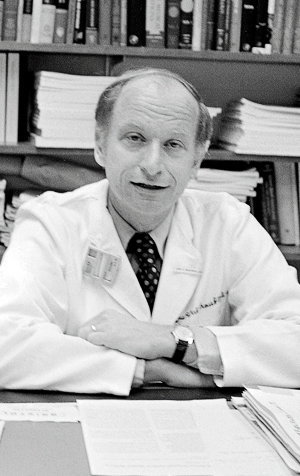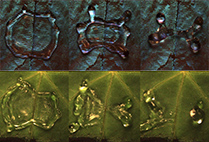William R. Cranley (MED’68)
70, a School of Medicine clinical professor of radiology and
associate professor of pediatrics, on May 18, 2013.
An expert in pediatric radiology, Cranley spent his entire medical career at Boston City Hospital, now Boston Medical Center (BMC).
He earned a bachelor’s degree from Villanova University and a medical degree from MED. After completing his training in pediatrics at Boston City Hospital, he served for three years as a major in the Air Force, stationed at Shaw Air Force Base in Sumter, S.C.
After opening a private practice in pediatrics, he soon became enamored with radiology and went back to BU for training. He would spend the next 35 years in pediatric radiology.
In 1997, Cranley was appointed vice chair of MED’s department of radiology. He was for many years a member of the school’s admissions committee.
Cranley was passionate about treating children and mentoring students and residents, according to an obituary in the Boston Globe. “‘Dr. Bill,’ as he was affectionately known, was beloved for his leadership, his knowledge, his teaching, his dry and unflagging sense of humor, but mostly for his dedication to the care of children and the education of hundreds of medical students and residents,” according to the Globe.
He was honored by BMC with the Jerome Klein Award for Physician Excellence as well as the Jack O. Haller Award for Excellence in Teaching from the Society for Pediatric Radiology, which recognizes those who have demonstrated an “outstanding ability to educate trainees (medical student, resident, and fellow) and…shown sustained substantial excellence in mentorship skills.”
Outside the classroom and the hospital, Cranley’s favorite place was his family’s home on Bow Lake in New Hampshire. Madeline Rosenberger (CAS’14, COM’14)
Lewis R. Weintraub
79, a School of Medicine professor of medicine, on August 18, 2013.

Lewis R. Weintraub
Weintraub, an award-winning teacher of hematology, was known for putting patients at ease and helping future medical students become the best in their field.
Weintraub graduated from Harvard Medical School when he was only 23 years old. He interned at the Hospital of the University of Pennsylvania and became a resident at the University Hospital in Ann Arbor, Mich. He began the study of hematology during a fellowship at Mount Sinai Hospital in New York City.
He served three years as a captain in the Army Medical Corps, working as assistant chief of hematology at Walter Reed General Hospital in Washington, D.C., where he worked with pioneering hematologist William Crosby and where he conducted research on iron metabolism.
Weintraub began his career in academia at Tufts University School of Medicine in 1965; he joined the MED faculty in 1972. He was the chief of hematology at Boston Medical Center (BMC) for more than 25 years, working full-time well into his 70s.
He was honored by the medical center with the 2011 Jerome Klein Award for Physician Excellence. “Lewis has a gentle approach to educating and mentoring his students, and he makes sure patients always receive the ultimate care,” said Ravin Davidoff, a MED professor of clinical cardiology and BMC chief medical officer, at the awards ceremony on January 31, 2012. “Thank you for what you have given us and our patients.”
Weintraub also was nationally known for his research, according to David Seldin, a MED professor of medicine and microbiology and chief of the section of hematology-oncology at BMC, who told the Boston Globe that Weintraub was “a giant of hematology from a different era in medicine.” MR














































Related Stories
Five BU Medical Campus Faculty Honored by Peers
Elected fellows by the American Association for the Advancement of Science
MED Physicians among Boston’s Top Docs
Boston magazine’s annual list includes 68 faculty
MED’s Bauchner Elected to National Academy of Medicine
Plum honor for Journal of the American Medical Association editor
Post Your Comment